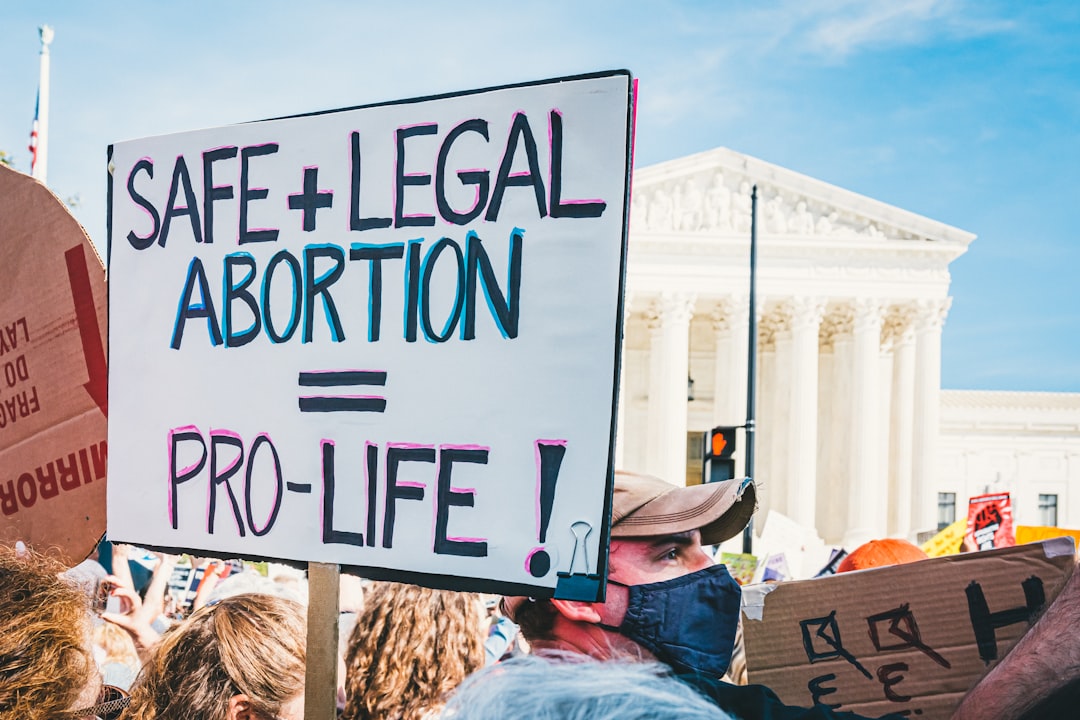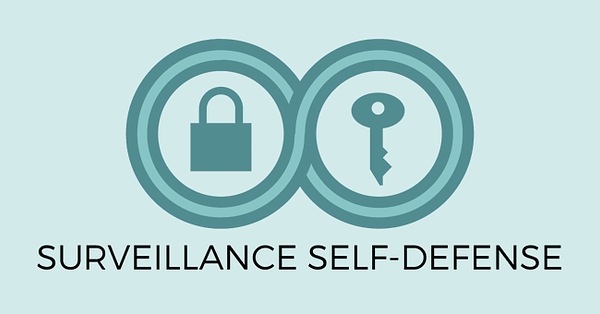
Hello friends both old and new,
We’re in for a contentious, but important topic today.
There’s a certain type of person on the internet, especially on Twitter that likes to make whatever is in the news about ‘the thing I always thought was True and Important’. It’s confirmation bias at it’s most infuriating.
Today I decided to become that guy and talk about abortions and digital privacy.
This letter isn’t called “Casual American Politics”. Going too deep into the mechanics of this specific issue would probably not be of interest to you, even if it’s something you care about. So let me just start by saying that I understand the “Privacy” angle is probably not the biggest and most important thing that folks are concerned about right now.
If you have a moment to spare, however, please allow me to make a sacrifice to the algorithm gods and tie an issue I care about to an issue that’s trending* and casually explore why it’s True and Important.
*Don’t get me wrong, I’m not minimizing the importance of abortion bans to just something that’s trending. I’m an unrepentant freedom loving, personal choice believing-in liberal - I believe having a right to one’s bodily autonomy is fundamental. But since I don’t live in the US, I have less ‘skin in the game’, hence my reserved tone.
Casual American Politics for a minute or two.
For those unaware here’s a very quick summary of what has happened.
As things stand today the right to have an abortion in America is not granted to the people by a law passed by the legislative body (as is the case in most other nations), but rather by the legal precedent set by two cases that were decided by the United States Supreme Court. (Case law is law for all intents and purposes, but we’re not getting into that right now)
These cases are known as Roe v. Wade and Planned Parenthood v. Casey (in case you were wondering why folks use ‘Roe’ or ‘Casey’ as a reference to abortion laws).
Under the US Constitution, individual states have some degree of autonomy and can have laws that diverge and contradict federal laws. For instance, some states have legalized the sale and consumption of marijuana, even though it is illegal at the federal level. In general, states can make laws that grant people more freedom than the corresponding federal law, but not less.
So why are people freaking out about abortion access if it is legal today ?
Last week news broke that the Supreme Court had voted to overturn the legal precedent set by Roe and Casey. This does not mean having an abortion is suddenly illegal, but that the right to have an abortion would no longer be guaranteed - meaning individual states can now pass laws to make abortion illegal without any exceptions.
And friends, there is no shortage of states getting ready to restrict or ban abortion.
How to stop a thing I don’t like from happening.
Passing a law that bans a thing “I don’t like” is the easiest part of “how to stop a thing I don’t like from happening”. It should come as no surprise to anyone that people don’t just follow rules, especially rules they don’t agree with. This is true even when the one breaking the rules is putting themselves at considerable risk by doing so.
Speeding is a contributing factor in 26% of traffic fatalities in the United States according to the US Dept. of Transportation. About half of the drivers involved were not wearing their seatbelts. People just don’t like rules, even when their own lives are at stake.
The folks preparing legislation to ban abortions seem to be aware of this. That’s why the language used in the abortion bans goes beyond forbidding the procedures themselves, but also carries criminal penalties for all involved.
Famously, the abortion ban passed by the state of Texas, would extend liability to anyone involved in facilitating an abortion. This means doctors, nurses, Uber drivers not just the women seeking out the procedure.
Since we’re picking on Texas, how about a recent proposed bill that would mean that women and doctors could face the death penalty for an abortion (very pro-life stuff if I may say so).
Now, if you’re thinking who in their right mind would arrest and charge a woman with a crime just for having an abortion, then hello from Texas again where a woman was arrested and charged with murder for allegedly trying to induce a miscarriage. Here’s the kicker: Eventually prosecutors had to drop charges because what they were alleging wasn’t, according to the law, a crime.
Let me say this again:
A person was put in JAIL for doing something that, even if the Prosecution is right about everything, is NOT a crime. Land of the free, home of the brave etc.
Two takeaways:
There’s political will to not just stop a medical procedure from happening but also to punish women, doctors, anyone within spitting distance of an abortion, miscarriage and (coming soon) even contraceptives.
There’s political will to use all instruments available to achieve these outcomes including and not limited to : arresting and detaining people that have not committed a crime all in the name of deterrence.
This is insane.
The personal privacy dystopia.
Big Tech has a data problem. I hope this isn’t news to you.
In a recent leaked document from Facebook they admit that they are gathering so much data, and this data is being fed into so many systems that they have no idea where it all goes and how to isolate it. This concern was expressed as it relates to different personal privacy regulations that are being enacted all over the world.
Over the years Facebook and other Tech giants have been working relentlessly on gathering, structuring and exploiting data for the rather unremarkable goal of showing us slightly better optimized ads. While this has been unnerving to privacy-oriented folks like myself, most people are bothered but not scandalized by this state of affaires.
A monumental shift in the legality and criminalization of abortions will prove to be a test case for our tolerance for data gathering.
Yesterday, DMing a friend on Instagram about your anxiety about raising a child was an innocent conversation.
Tomorrow it will be evidence to establish your malicious state of mind.
Using Google to search for an obstetrician will be evidence that speaks to your criminal intent.
Money that friends/family will send through Apple Pay or Venmo is aiding and abetting a crime.
Your location history, Uber history will be used against you by the prosecution to build a timeline of that will be shown to the judge and jury to establish your guilt.
You can see where I’m going with this.
These tech companies have a history of your data and they will be compelled to provide it to the prosecution.
And don’t expect the technology behemoths to make a stand against unjust use of government power. There’s no shortage of examples of Big Tech complying with laws in authoritarian states.
Google was more than happy to cooperate with the Chinese government on building a censored search engine. To be fair to Google, the project was eventually terminated after it became public.
Facebook and Twitter censored criticism of the government’s handling of the Coronavirus pandemic in India because of the local laws.
Oh … and in case you’re thinking that a certain billionaire Twitter enthusiast will come in and save the day … don’t hold your breath. As I’ve written before, his incentives are no different than the folks who run Twitter today. He’ll either fold and follow the law, or risk lighting $43B on fire.
So, I’m afraid there’s little chance of reprieve from the tech giants. They’ll hire PR agencies that tell them what to say, but won’t risk their investors’ money by taking a principled stance.
All this data can and will be used against you in a court of law.
Oh … Did I mention that there are people out there gathering and selling this type of data already ?


$160 to get access to a week’s worth of data that anyone, and I mean anyone, can just access and do with it, very good and not-at-all dangerous things, I’m sure.
I’ve got nothing to hide.
I’ll make this quick. Surveillance is bad. Sometimes surveillance stops bad people from doing bad things. It’s still bad (there are plenty of other means to stop the bad people). Even if you’re a perfectly law-abiding citizen, it’s bad. Even if you’ve got nothing to hide. Bad.
Something that is legal and acceptable (even if contentious) today can become illegal in a heartbeat and there’s no telling when the line moves and you find yourself having to research OpSec best practices.
I’ll just leave this here for absolutely no reason.


Data minimization.
Does your bank need to know your name and address ? Yes.
Does Facebook ?
Uhm … not really. Data Minimization is about gathering data for a very specific, discrete purpose and holding on to that data only as long as you need to.
Let me give you another example. Say you want to book a table at a restaurant. You will have to leave a name and a contact number. But after you’ve arrived at the restaurant and have started having your dinner, what should the restaurant be doing with your data ?

Most of the internet does not work this way. In fact, there’s a lot of data-hoarding going on. Much like Facebook, the internet is full of folks who just scrape all of your data and pass it forward or feed it into the machine, hoping for a better optimized advertisement delivery mechanism, without considering the negative externalities of this behavior.
At what point do we stop and ask “is this a good trade-off?”
At what point do we ask the Twitters and Googles of the world to do what the restaurant does?
I submit to you, dear reader, that we are past that point.
That’s our show, see you next time. Stay safe out there,
CCS
PS: Oh, and since I couldn’t shoehorn a good Taylor Swift lyric in this edition, enjoy:

